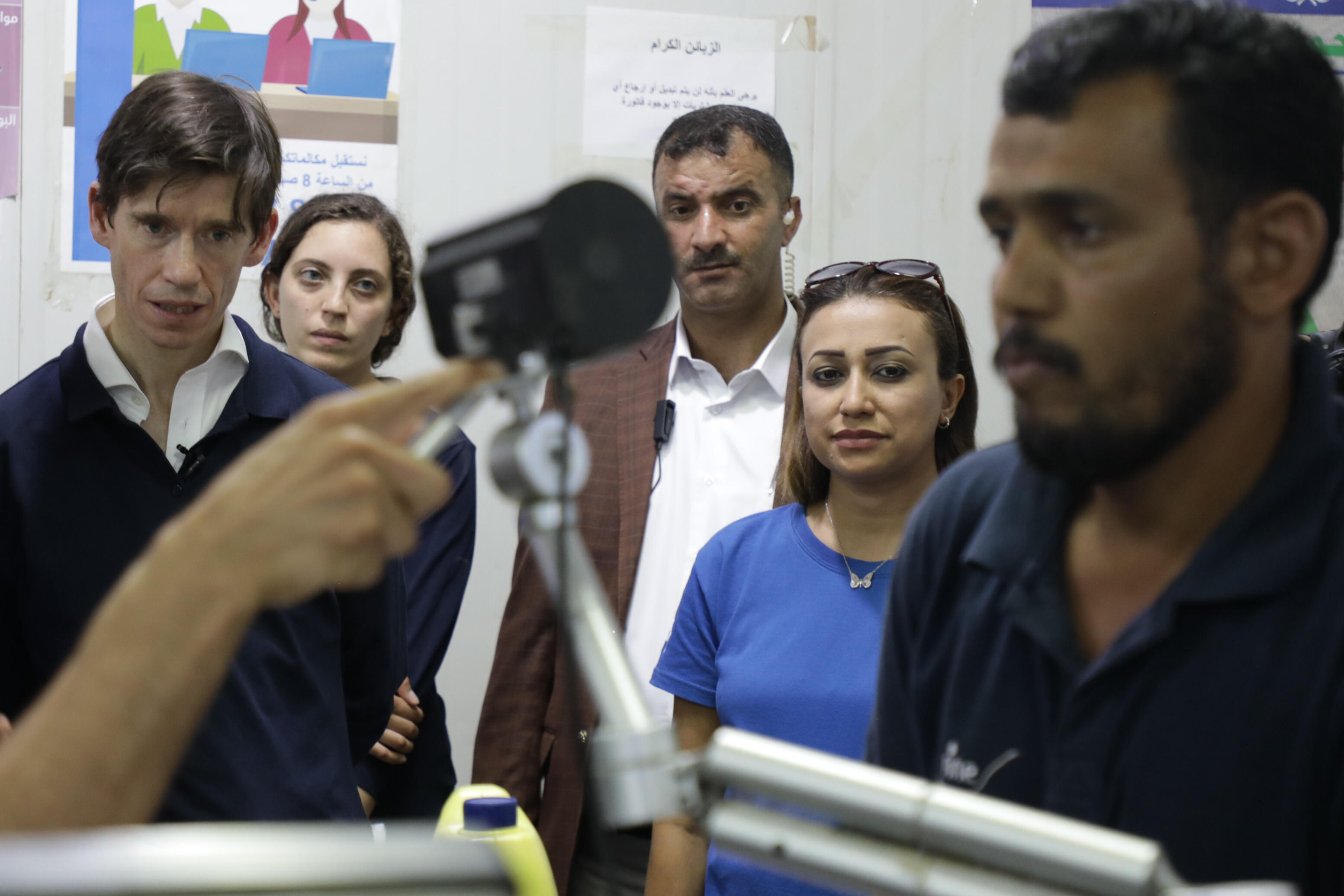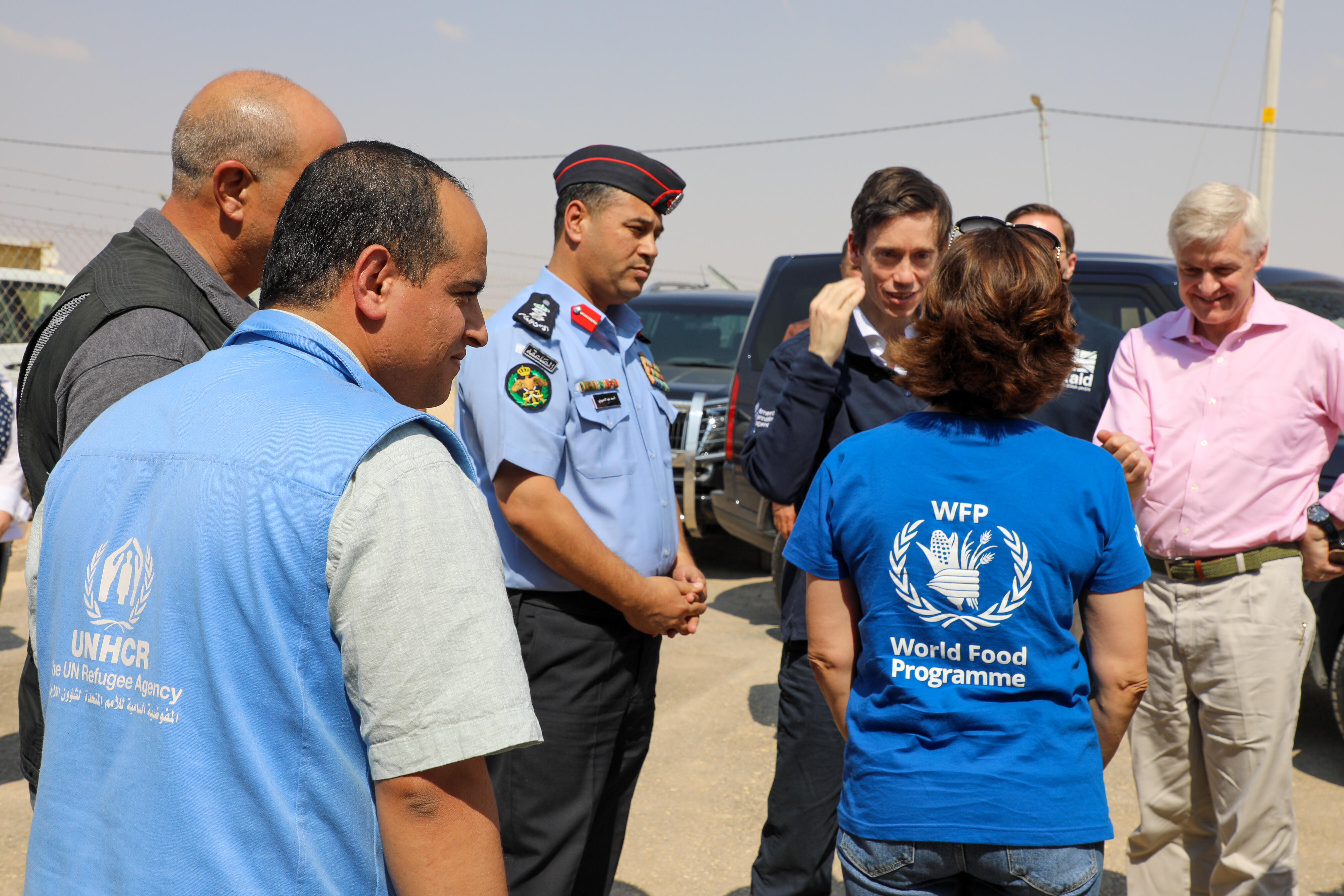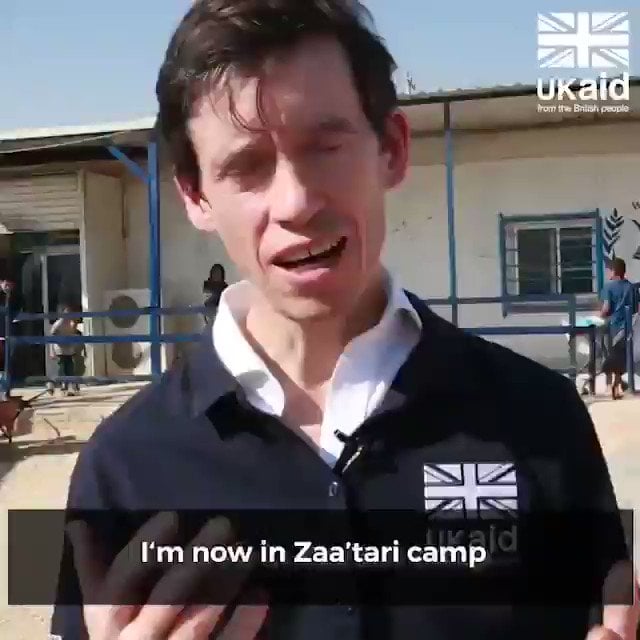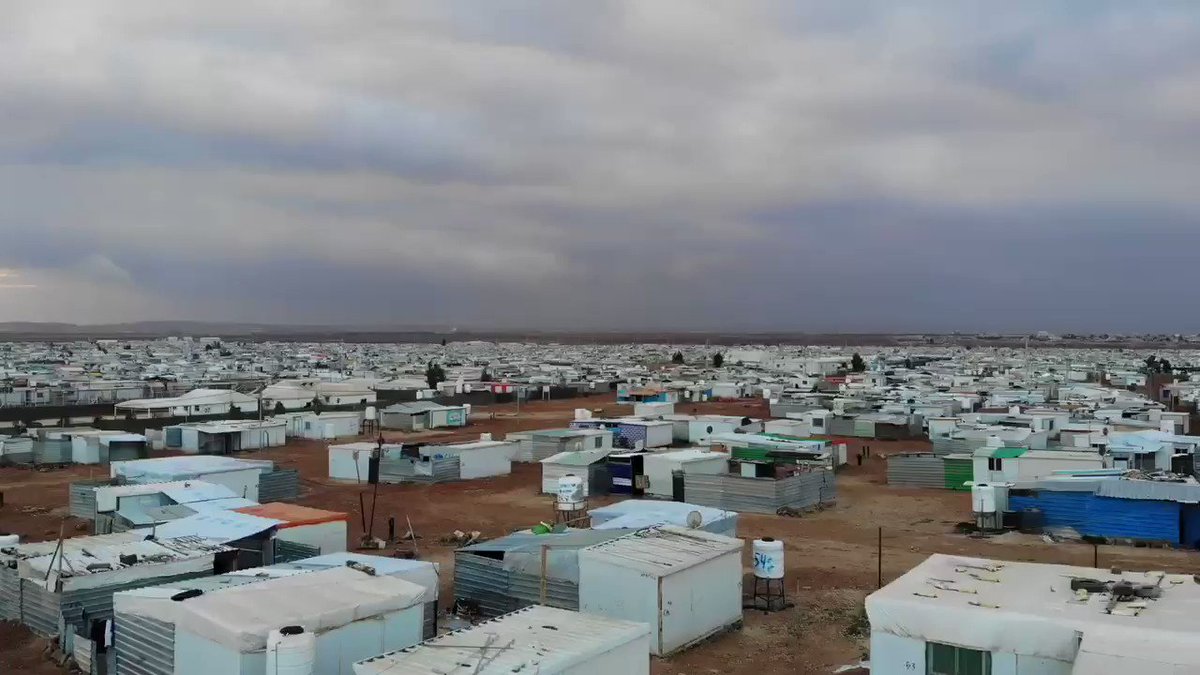UNHCR Welcomes UK Commitment to Syrian Refugees in Jordan
UNHCR Welcomes UK Commitment to Syrian Refugees in Jordan

International Development Secretary Rory Stewart, second from left, with a Syrian family in Jordan. The UK funding will help refugees in Jordan rebuild their lives.
The UK this week reaffirmed its commitment to supporting Syrian refugees in Jordan with a £55 million donation to UN humanitarian agencies over three years.
The funding will support UNHCR, the UN Refugee Agency, the World Food Programme (WFP) and UNICEF and will be primarily used for cash-based assistance to Syrian refugees as well as broader services for refugees and the host community.
The funding was announced by International Development Secretary Rory Stewart on a visit to Jordan this week.

Jordan is one of the countries most affected by the Syria crisis, currently hosting 755,000 refugees. That represents the second highest share of refugees per capita in the world, behind Lebanon. Syrian refugees in Jordan and the region are in an increasingly precarious position; around 70% are living below the poverty line, and the majority are in debt.
The UK assistance is especially welcome as funding for Syrian refugees has been declining as the conflict drags on. UNHCR’s 2019 Jordan appeal was only funded at 20% of $371.8 million as of end May. Reduced assistance due to funding cuts pushes refugee families further into a spiral of vulnerability, for example forcing parents to take kids out of school to work, reducing meals, limiting access to health, and raising the prospect of exploitation, abuse and dangerous onward journeys.
In Jordan, 84% of Syrian refugees live in urban areas, while 16% live in three refugee camps; 48% of refugees are children, and 4.5% are elderly. Over 125,000 work permits have been issued for Syrian refugees since 2016.

UNHCR uses cash-based interventions to provide protection, assistance and services to the most vulnerable. Cash helps the displaced meet a variety of needs, including access to food, water, healthcare, shelter, that allow them to build and support livelihoods, and to facilitate voluntary repatriation.
UNHCR cash programmes are cost-efficient, encouraging partnership and collaboration, and are backed by biometrics to counteract fraud. In Jordan, cash delivery is provided through ATMs, iris scans and the EyeCloud. Cash assistance can also directly benefit the local economy, helping relations with host communities. In Jordan, monthly cash assistance was distributed to 134,262 people in April of which 126,575 were Syrian refugees.

International Development Secretary Rory Stewart announced the funding on a visit to Jordan this week.
The International Development Secretary visited the Za’atari refugee camp, close to Jordan’s northern border with Syria. It has become emblematic of the displacement of Syrians across the Middle East following its establishment in 2012. In that time, the camp’s evolution, from a small collection of tents into an urban settlement reflects both the needs and aspirations of the camp’s residents and a transition to a more predictable, cost effective and participatory platform for the delivery of assistance.
Za’atari is home to 77,447 refugees; nearly 20% are under five years old; 18,493 children enrolled in its 32 schools, with 58 community centres offering activities. Twenty percent of the refugees are in female-headed households.

UNHCR, the World Food Programme (WFP) and UNICEF will benefit from this timely donation.
Mr Stewart told broadcaster Al Arabiya on the trip how DFID has pledged to give £55 million to support refugees in Jordan. During the visit, he spent time at Jordan Solar One Power, one of the country’s largest solar fields. He also highlighted how the UK has helped boost Jordan’s economy, by guaranteeing to underwrite loans from the World Bank to the country and provide grants for economic development.
The UK assistance is part of a wider allocation which was announced by the UK Prime Minister at the Jordan Conference in London February 2019. It will provide financial assistance to 22,000 of the most vulnerable refugees, caught in the protracted crisis
The UK assistance, including UNHCR cash support, fits with the aims of the Global Compact on Refugees, a new blueprint to better share the burden of responsibility for refugee situations, which falls primarily on developing and middle-income countries. The Compact was agreed by the UN General Assembly late last year.



